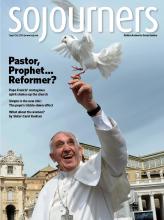DURING MY EARLY years of sobriety, I spent most Monday nights in a smoke-filled parish hall with some friends who were also sober alcoholics, drinking bad coffee. Pictures of the Virgin Mary looked down on us, as prayer and despair and cigarette smoke and hope rose to the ceiling. We were a cranky bunch whose lives were in various states of repair. There was Candace, a suburban housewife who was high on heroin for her debutante ball; Stan the depressive poet, self-deprecating and soulful; and Bob the retired lawyer who had been sober since before Jesus was born, but for some reason still looked a little bit homeless.
We talked about God and anger, resentment and forgiveness—all punctuated with profanity. We weren’t a ship of fools so much as a rowboat of idiots. A little rowing team, paddling furiously, sometimes for each other, sometimes for ourselves; and when one of us jumped ship, we’d all have to paddle harder.
In 1992, when I started hanging out with the “rowing team,” as I began to call them, I was working at a downtown club as a standup comic. I was broken and trying to become fixed and only a few months sober. I couldn’t afford therapy, so being paid to be caustic and cynical on stage seemed the next best thing. Plus, I’m funny when I’m miserable.
This isn’t exactly uncommon. If you were to gather all the world’s comics and then remove all the alcoholics, cocaine addicts, and manic depressives you’d have left ... well ... Carrot Top, basically. There’s something about courting the darkness that makes some people see the truth in raw, twisted ways, as though they were shining a black light on life to illuminate the absurdity of it all. Comics tell a truth you can see only from the underside of the psyche.
Read the Full Article

